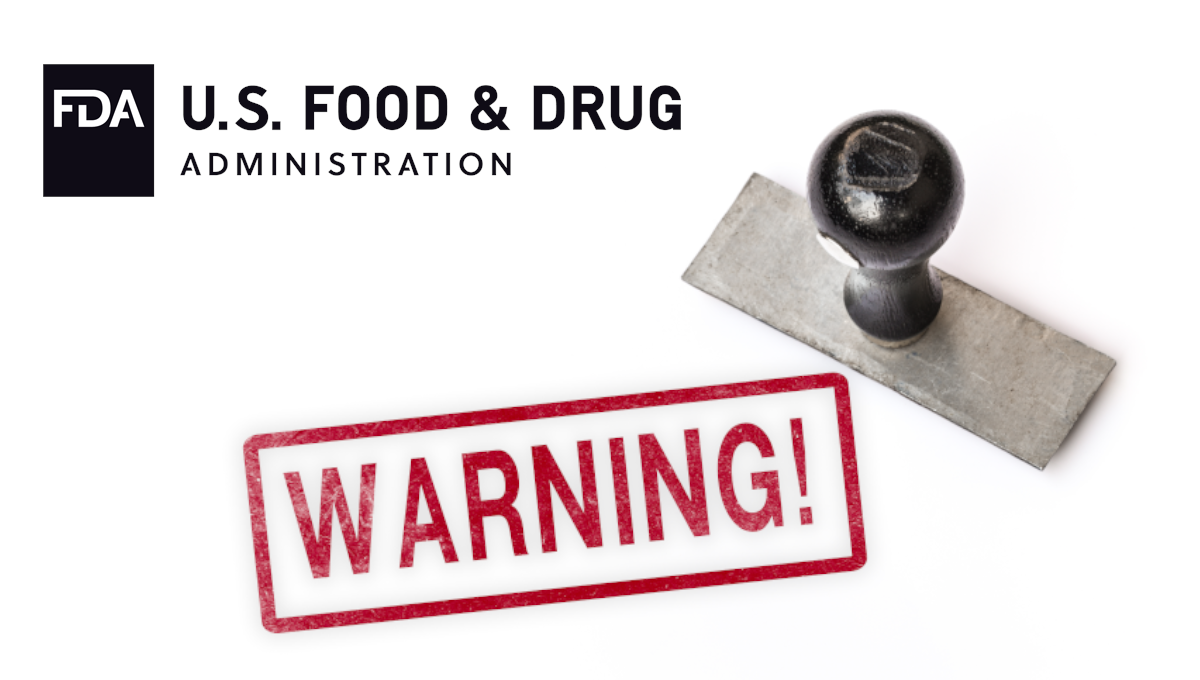As part of its enforcement activities, the Food and Drug Administration sends warning letters to entities under its jurisdiction. Some letters are not posted for public view until weeks or months after they are sent. Business owners have 15 days to respond to FDA warning letters. Warning letters often are not issued until a company has been given months to years to correct problems.
El Savador Products Inc.
Sugarland, TX
An import company in Texas is on notice from the FDA for not having FSVPs for a number of imported food products.
In a Sept. 2, 2022, warning letter the FDA described a June 3-8, 2022, Foreign Supplier Verification Program (FSVP) inspection of El Salvador Products Inc. in Sugarland, TX.
The FDA’s inspection revealed that the firm was not in compliance with FSVP regulations and resulted in the issuance of an FDA Form 483a. Some of the significant violations are as follows:
The firm did not develop an FSVP for any foods that they import, including the following foods:
- Salsa & Queso Chips and Sweet Bread imported from (redacted), located in (redacted)
- Pineapple Pastry imported from a foreign supplier (redacted), located in (redacted)
The full warning letter can be viewed here.
Mena Produce LLC
McAllen, TX
An import company in Texas is on notice from the FDA for not having FSVPs for a number of imported food products.
In a Sept. 20, 2022, warning letter the FDA described a June 14-21, 2022, Foreign Supplier Verification Program (FSVP) inspection of Mena Produce LLC in McAllen, TX.
The FDA’s inspection revealed that the firm was not in compliance with FSVP regulations which resulted in the issuance of an FDA Form 483a. Some of the significant violations are as follows:
The firm did not develop, maintain, and follow an FSVP for any of the foods they import, including each of the following:
- Anaheim peppers imported from (redacted), located in (redacted)
- Tomatillos imported from (redacted), located in (redacted)
- Poblano peppers imported from (redacted), located in (redacted)
The firm imports fresh produce, which is “covered produce.” As an importer of covered produce, they must have an FSVP that demonstrates that their supplier is producing the food in compliance with processes and procedures that provide at least the same level of public health protection as those required and the implementing regulations in the Standards for the Growing, Harvesting, Packing, and Holding of Produce for Human Consumption.
The full warning letter can be viewed here.
DF Global Inc.
Commerce, CA
An import company in California is on notice from the FDA for not having FSVPs for a number of imported food products.
On Aug. 1, 2022, a warning letter from the FDA described the March 30, 2022, Foreign Supplier Verification Program (FSVP) inspection of GF Global, Inc. in Commerce, CA.
The FDA’s inspection revealed that the firm was not in compliance with FSVP regulations which resulted in the issuance of an FDA Form 483a. Some of the significant violations are as follows:
1. The firm did not conduct a hazard analysis for each type of food they import to determine whether there are any hazards requiring control, as required. A hazard means any physical, chemical (including radiological), or physical agent that is reasonably likely to cause illness or injury. A hazard requiring a control means a known or reasonably foreseeable hazard for which a person knowledgeable about the safe manufacturing, processing, packing, or holding of food would base on the outcome of a hazard analysis, establish one or more controls or measures to significantly minimize or prevent the hazard in food and components to manage those controls or measures as appropriate to the food, the facility, and the nature of the control or measure and its role in the facility’s food safety system. Specifically, in their hazard analysis for “Tea (powder type: Walnut Almonds, etc),” which we understand to be for their Walnut Almond Adlay Tea imported from (redacted), located in (redacted), they did not identify the chemical hazards of undeclared allergens or natural toxins, such as mycotoxins in peanuts and tree nuts (which includes walnuts and almonds). According to the product labels they provided during the most recent inspection, Walnut Almond Adlay Tea contains milk, soy, peanut, walnut, and almond, which are food allergens.
2. The firm did not meet the requirements to perform foreign supplier verification activities in accordance with regulations for the products they import. For an onsite audit, they must retain documentation of each onsite audit, including the audit procedures, the dates the audit was conducted, the conclusions of the audit, any corrective actions taken in response to significant deficiencies identified during the audit, and documentation that the audit was conducted by a qualified auditor. For a food that is subject to one or more FDA food safety regulations, an onsite audit of the foreign supplier must consider such regulations and include a review of the supplier’s written food safety plan if any, and its implementation, for the hazard being controlled. Their third-party onsite audit report of (redacted), from (redacted), dated April 22 through 23, 2021, includes the audit procedures, the dates the audit was conducted, and the conclusions of the audit.
The full warning letter can be viewed here.
(To sign up for a free subscription to Food Safety News, click here)

